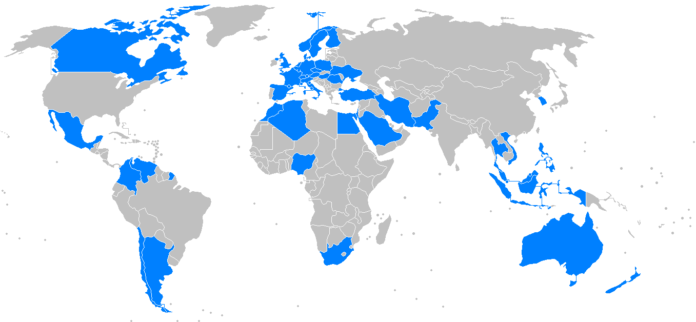Author: Roland Paris
Affiliation: Professor and Associate Fellow, US and the Americas Programme
Organization/Publisher: Chatham House, U.K.
Date/Place: June 2019, UK
Type of Literature: Policy Analysis
Number of Pages: 16
Link:https://www.chathamhouse.org/sites/default/files/publications/research/2019-06-18-MiddlePowers.pdf
Keywords: Liberal International Order, Middle Powers, Migration Crisis, Cyber security, Hostage Diplomacy
Brief:
The author states that middle powers now see it as their responsibility “to protect international norms, agreements and institutions when they come under pressure”. This is due to the fact, that major powers such as the U.S. (with its attitude towards EU, NATO), China (with its human rights issues) and Russia (with its invasion of Ukraine and annexation of Crimea) create challenges for the world. He further emphasizes that the collaboration of middle powers such as Japan, Germany, the U.K., France, Canada, South Korea and Australia, which together account for more than one-fifth of the world economy, have the potential to prevent the possibility that the liberal world order would be further exposed to danger. He highlights the importance of “plurilateral initiatives” which foster issue-specific coalitions. For middle powers to have meaningful impacts, establishing informal consultations for holding each other accountable is necessary. He proposes several initiatives including foregrounding the modernization of the international migration regime, establishing new rules for international cyber-security, and combating climate change. These actions, he concludes, don’t need to be perfect, but they must force middle powers to start thinking about a campaign on how to sustain and reform key parts of the international order.
By: Dilek Yücel-Kamadan, CIGA Research Associate




